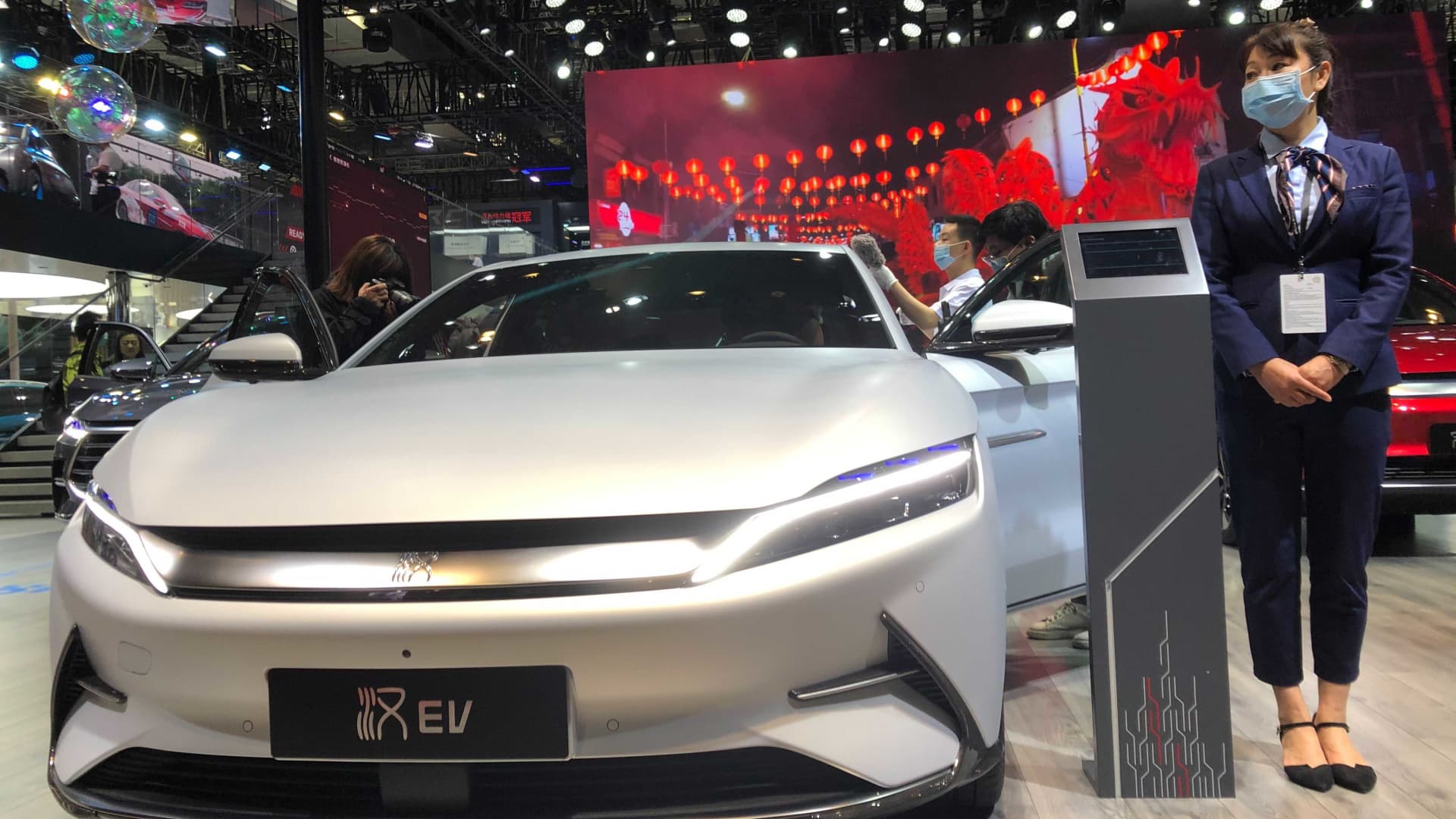BEIJING — Tesla cut prices for its electric cars in China by more than BYD did for its flagship Han sedan, according to analysis Wednesday from U.S.-based firm JL Warren Capital.
Tesla reduced the price of its Model 3 by 6% compared to December last year, and cut the price of Model Y by 11% during the same period of time, JL Warren Capital CEO and Head of Research Junheng Li said in the report.
BYD’s Han only saw a 5% price decrease during that time, she said.
The Han, the company’s premium electric sedan, sells in a similar price range as Tesla’s cars — above 200,000 yuan ($28,000). Most of BYD’s other cars cost much less.
The report showed that BYD increased its sales promotions throughout the year, shaving 10% or 17% off the price of some mass market models. “Double-digit discounts are a common promotion by [original equipment manufacturers] to stimulate sell-through and meet the sales target,” Li said.
High-end electric car startup Nio also cut prices this year, despite initially trying to avoid getting caught up in an industry price war.
“Unlike in the EU or the US, residual values do not appear to feature highly in Chinese consumers’ purchase decisions,” HSBC analysts said in a Dec. 4 report about the auto industry. “That is perhaps the reason why price competition is so severe in China relative to EU/US.”
Thanks partly to government support, penetration of new energy vehicles, which include battery and hybrid-powered cars, has surged to well over one-third of new passenger cars sold in China.
Li expects that penetration rate will be around 40% next year, while electric car sales grow by 20%, a slowdown from a 35% increase in 2023.
Already for this year, the industry’s largest automakers had an “overly ambitious goal” of 93% sales growth, Li said. She pointed out that among 13 major EV manufacturers in China, only Tesla and Li Auto are set to reach their respective sales targets for the year.
That signals competition is about to get fiercer in China, the world’s largest auto market, which could lead to the potential for industry waste.
“New models spur EV demand, but at the cost of intensifying [the] pricing war as the market is flooded with inventory of ‘obsolete’ models,” Li said, noting the new car development cycle in China has been reduced to one or two years versus about three years previously.
